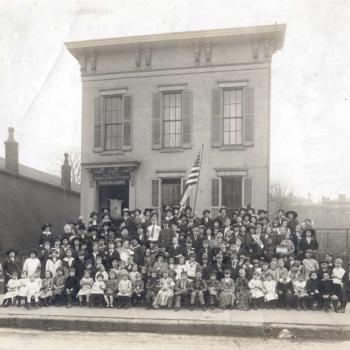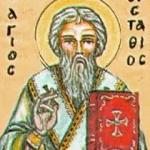A few years ago I was put in charge of our department’s introductory course for graduate students, Historian’s Craft. I was like a kid in a candy shop. Feel free to ask my students what they think, but, hey, I love it. It’s an opportunity to reflect on the big questions of why and how historians do what they do.
The course does cover the traditional overview of different schools of historiography (different ways historians ask questions and analyze evidence). But because Baylor also offers other courses on historical theory, I added additional topics. Specifically, I conceptualized the rest of the course as a “high-low split.” (Texan here, taught to play variations on Texas Hold ’Em!)
The “high” part are units dedicated to questions like the nature of causation, whether the past is knowable, and how historians include God (or not) in their scholarship and teaching. The “low” part are units dedicated to things like how to use digital history tools, how to conduct research in a physical archive, and how to present at a conference. Or, as I like to put it, “What are we even doing on the planet? Also, here’s how to use Zotero.”
Because I teach at Baylor, the “high” portion of the course includes a deep dive into how Christian historians have thought about connecting their faith and their work. This is one of my favorite units. (Another focuses on helping students think through how to structure a healthy holistic life in keeping with their beliefs and values…while still in graduate school!)
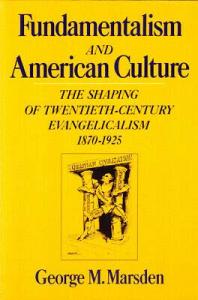 I took my cue for this year’s discussion from a recent online kerfuffle among Christian historians regarding “evangelical elites” that turned into a discussion of the legacy of George Marsden. [Full disclosure: Marsden sat on my dissertation committee.] I started our class reading with his “Afterward” to Fundamentalism and American Culture (first published 1980 and with a third edition releasing in 2022). I ended it with the recent blog posts and Twitter threads by Carl Trueman, Thomas Kidd, and Kristin Kobes Du Mez that constitute the aforementioned kerfuffle. Across that 41-year span, we read a wide variety of Christian historians from different traditions–from Catholic to Baptist and a lot in between–reflecting on how their faith has influenced their professional practice.
I took my cue for this year’s discussion from a recent online kerfuffle among Christian historians regarding “evangelical elites” that turned into a discussion of the legacy of George Marsden. [Full disclosure: Marsden sat on my dissertation committee.] I started our class reading with his “Afterward” to Fundamentalism and American Culture (first published 1980 and with a third edition releasing in 2022). I ended it with the recent blog posts and Twitter threads by Carl Trueman, Thomas Kidd, and Kristin Kobes Du Mez that constitute the aforementioned kerfuffle. Across that 41-year span, we read a wide variety of Christian historians from different traditions–from Catholic to Baptist and a lot in between–reflecting on how their faith has influenced their professional practice.
One of the things that struck me is that Christians’ reflections on the philosophy of history writing and teaching tend to fall into two broad categories: metaphysical and ethical.
For example, here is the portion of the 2-page afterward to Fundamentalism and American Culture that I had remembered and why I had assigned it:
“The history of Christianity reveals a perplexing mixture of divine and human factors. As Richard Lovelace has said, this history, when viewed without a proper awareness of the spiritual forces involved, ‘is as confusing as a football game in which half the players are invisible.’ The present work, an analysis of cultural influences on religious belief, is a study of things visible. As such it must necessarily reflect more than a little sympathy with the modern mode of explanation in terms of natural historical causation. Yet it would be a mistake to assume that such sympathy is incompatible with, or even antagonistic to, a view of history in which God as revealed in Scripture is the dominant force, and in which other unseen spiritual forces are contending.”
Here we find the foundational metaphysical claim shared by many contemporary Christian historians: God exists, God works in the world, but so do humans and natural forces, and it is appropriately humble to confine ourselves as historians to the latter. Marsden would elaborate this claim further in the postscript to his 1994 The Soul of the American University. There he argued that because of this shared commitment to a common mode of practice among historians of faith and those without, theistic metaphysical commitments should not preclude scholars from participating from that perspective in a genuinely pluralistic academy.
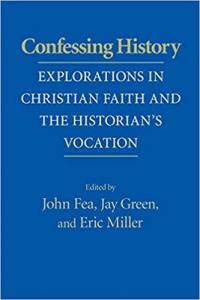 Other thinkers we read pushed back on this approach or came at the question from a different angle, but still within the basic framework of wrestling with faith-history integration from a metaphysical perspective. Christopher Shannon argued in his 2010 chapter, “After Monographs: A Critique of Christian Scholarship as Professional Practice” (in the book Confessing History) that Christian historians should abandon writing yet another monograph that seeks to recover the “agency” of various historical subjects and considers that a good in itself.
Other thinkers we read pushed back on this approach or came at the question from a different angle, but still within the basic framework of wrestling with faith-history integration from a metaphysical perspective. Christopher Shannon argued in his 2010 chapter, “After Monographs: A Critique of Christian Scholarship as Professional Practice” (in the book Confessing History) that Christian historians should abandon writing yet another monograph that seeks to recover the “agency” of various historical subjects and considers that a good in itself.
Instead, Christian historians at Christian institutions should focus on revamping our curriculum to be in keeping with what we really believe: that God is at work in history. Specifically, Shannon argued such schools should require an introductory course that narrated Christian history as that Christian group believes it happened: “This would be the setting where historians could freely make assertions regarding God’s providence; this is where one could say the Holy Spirit caused the Great Awakening” (181).
Meanwhile, Robert Orsi argued in his 2016 book History and Presence that perhaps all historians, regardless of faith, should actually do a bit more of this in monographs too. Raised Catholic, Orsi saw these questions through eyes accustomed to this world’s rich liturgical depictions of the world beyond. Focusing on the phenomenon of Marian apparitions, he noted that such events do not appear to be fully causally determined by pre-existing natural factors—at least not any accessible to the historian. Nor did the people experiencing the visions seem to have expected them. For all intents and purposes, the singularity broke into history and changed it. Like a stone thrown from heaven into our pond, it has made ever-widening ripples down to the present—seen in such locations as Lourdes, all the material culture and practices that have grown up there, and all the many people’s lives shaped by the appearance of Mary to Bernadette in that location in 1858.
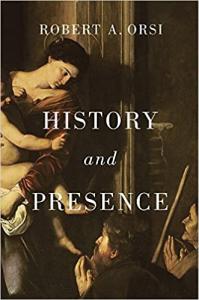 From the other camp, Mark Schwehn approached the Christian practice of history through an ethical lens in his 1992 Exiles from Eden. Schwehn argued Christian historians ought to see all their activities—those in the classroom and those with the pen—through the lens of teaching. Effective teaching, in turn, is dependent on embodying “such spiritual virtues as humility, faith, self-sacrifice, and charity” (41). Schwehn affirms that such virtues are found in people of all faiths and none, but asserts that healthy religious communities, especially Christian colleges, have access to much more of the communal resources and thick practices proven to effectively inculcate these virtues. This, in turn, constitutes their unique contribution to the profession.
From the other camp, Mark Schwehn approached the Christian practice of history through an ethical lens in his 1992 Exiles from Eden. Schwehn argued Christian historians ought to see all their activities—those in the classroom and those with the pen—through the lens of teaching. Effective teaching, in turn, is dependent on embodying “such spiritual virtues as humility, faith, self-sacrifice, and charity” (41). Schwehn affirms that such virtues are found in people of all faiths and none, but asserts that healthy religious communities, especially Christian colleges, have access to much more of the communal resources and thick practices proven to effectively inculcate these virtues. This, in turn, constitutes their unique contribution to the profession.
In more recent reflections by Christian scholars, an ethical lens has come to the fore in a different way: connecting the practice of our craft with contemporary social injustices stemming from historic discrimination based on human differences such as race, class, or gender. In a 2018 panel at the Conference on Faith and History organized by Kristin Kobes Du Mez and published the next year in Fides et Historia, four scholars (including myself) reflected on “Christian Scholarship for Such a Time as This.” As panel commentator, George Marsden then connected our reflections to the tradition of Christian historiography of which he is one of the most prominent representatives.
Presenters Elesha Coffman and Janine Giordano Drake constitute excellent contemporary examples of this ethical approach to Christian history. Both argued, in different ways, that privileging a doctrinal analysis of historic Christianity over an ethical one has distorted the past and left Christians unnecessarily impoverished in our ability to navigate to the problems of the present.
Coffman argued that Christian historians’ focus on theological debates like the fundamentalist-modernist controversy led them for many years to comparatively neglect analyzing the church’s involvement in social ills like racism. She further contended that recent events in American evangelicalism demonstrate that the latter can be more determinative of Christians’ actions than the former, then and now, and we need accurate histories to inform today’s decisions.
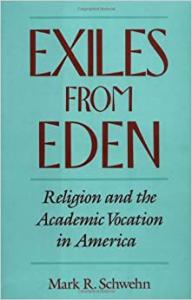 Drake similarly argued that an overemphasis on tracing the theological bounds of the Christian tradition has led Christian historians to neglect analysis of working-class American Christians who might not have felt welcome at churches and whose theology came from labor newspapers rather than pulpits, but who very much identified as followers of Jesus. Seeing the Christian tradition through the lens of formal theology divorced from questions of social ethics thus could cause historians to overlook key aspects of that tradition and create a false image of our common heritage.
Drake similarly argued that an overemphasis on tracing the theological bounds of the Christian tradition has led Christian historians to neglect analysis of working-class American Christians who might not have felt welcome at churches and whose theology came from labor newspapers rather than pulpits, but who very much identified as followers of Jesus. Seeing the Christian tradition through the lens of formal theology divorced from questions of social ethics thus could cause historians to overlook key aspects of that tradition and create a false image of our common heritage.
Carl Trueman recently pushed back on this ethical style of writing Christian history. He argued that the shift in focus among many Christian historians to critique the tradition based on social ethics constituted a capitulation to secular priorities. This was because the basis for inclusion in the secular academic conversation was no longer common commitment to principles of reason and evidence as articulated by Marsden. Now it was common commitment to specific ethical stances. If Christian scholars emphasized common stances, they could participate; those Christians who articulated a divergent stance on, say, abortion or gay marriage, would likely be excluded from serious discourse in wider academia. Hence, he argued that integrity demands that Christian scholars today should spend at least as much time critiquing culture from the perspective of whatever doctrines they hold that depart from the secular consensus as they do critiquing the church for failing to live up to values shared with the wider academy.
Thomas Kidd, a Marsden student, agreed in part and disagreed in part. In short, Kidd thought Trueman was overreacting; most Christian scholars of various convictions could carry on faithfully in their teaching and scholarship at a variety of institutions without harassment. Still, in a key passage, he voiced sympathy with Trueman’s critique of what we might call the critical-ethical approach to Christian history, particularly as it relates to evangelicalism: “[Noll and Marsden’s] works were critical but empathetic toward evangelicals. The most popular histories of evangelicalism in the past decade have instead been written in an activist, anti-evangelical mode. Loathing has often replaced empathy in the study of American evangelicals, even among some Christian historians.”
Fellow Marsden student Kristin Kobes Du Mez pushed back in a Twitter thread that asked, “[D]oes pointing out abuses of power necessarily make a work more activist than, say, insisting on putting the best face forward at the cost of downplaying the darker sides of evangelical history?….Which evangelicals warrant…empathy? Powerful leaders? Those complicit in abuse? And what of the less powerful, the survivors, those excluded or trampled…do they have a place in our stories & also warrant our empathy?…[W]hat counts as ‘anti-evangelical’? Histories that help evangelicals confront truths about their own past? Or histories that help powerful evangelicals feel good about themselves?”
***
Because I thought I remembered it, I had actually left the 2-page afterward to Fundamentalism and American Culture for last in my preparations for our class discussion on all of this. So imagine my surprise that the final paragraph to the book that in many ways started it all read:
“In American church history many authors have pointed to the intertwining of Christianity with the various ‘isms’ of the times—nationalism, socialism, individualism, liberalism, conservativism, scientism, subjectivism, common-sense objectivism, romanticism, relativism, cultural optimism, cultural pessimism, intellectualism, anti-intellectualism, self-ism, materialism, and so forth. Fundamentalism, as we have seen, incorporated some of these into its vision of Christianity. Yet God can certainly work through some such combinations. Christians’ trust in God may be mingled or confused with some culturally formed assumptions, ideals, and values. Inevitably it will. The danger is that our culturally defined loves, allegiances, and understandings will overwhelm or take precedence over our faithfulness to God. So the identification of cultural forces, such as those with which this book is concerned, is essentially a constructive enterprise, with the positive purpose of finding the gold among the dross.
Ethics and metaphysics go together. Justice and doctrine reinforce one another—both as goals and as questions of historical concern. But every Christian historian does not have to give these questions equal emphasis. One historian can focus on a critique of the tradition while another focuses on a strength of the tradition. (Although both run the risk of failing to include evidence that might cut against their emphases.) Together they make a complete picture. The Christian Scriptures teach that only together do the members of the church make up the Body of Christ, and “the eye cannot say to the hand, ‘I don’t need you!’” There is not a singular “Christian historiography.” There is the unified goal of loving God and loving neighbor through our profession that we as Christian historians collectively pursue.
As a dear friend’s slightly cheesy wedding slogan puts it, we are “better together.”






